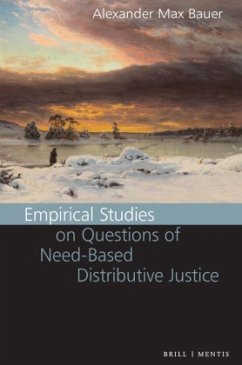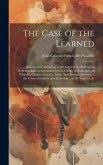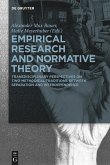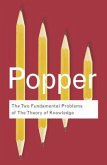Needs fundamentally define us as human beings. This volume examines their role in dealing with distributive justice problems through a series of vignette studies. Among other things, it becomes clear that impartial observers make gradual assessments of justice that depend on how well the observed individuals are endowed with a good. If it is known how high their need for that good is, the assessments are made relative to this reference point. In addition, impartial decision-makers make hypothetical distribution decisions considering need, productivity, and accountability. The need of individuals is partially compensated even if they have contributed less to the available amount than they require. However, willingness to do so decreases if they are accountable for needing more or contributing less.
Bitte wählen Sie Ihr Anliegen aus.
Rechnungen
Retourenschein anfordern
Bestellstatus
Storno








